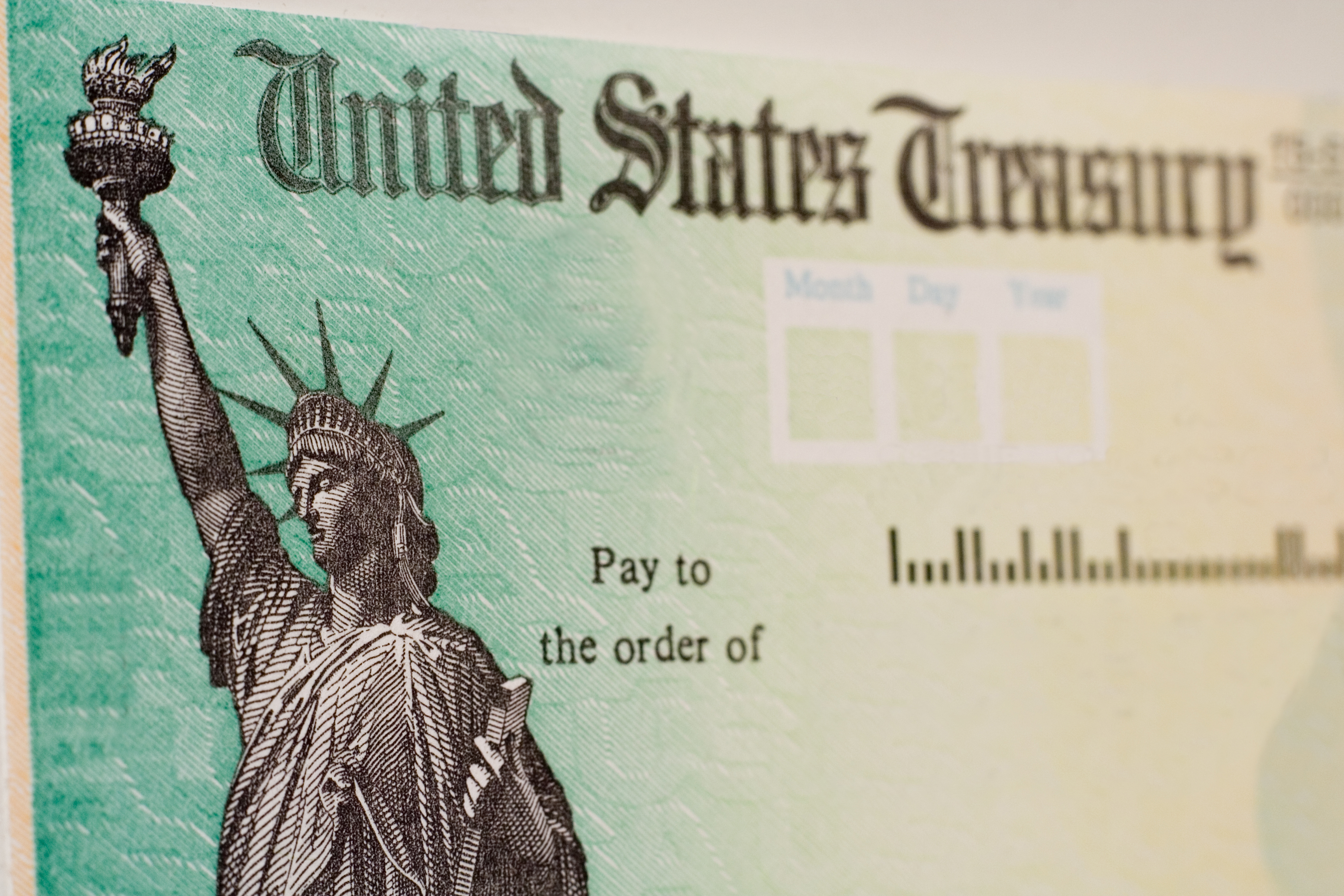Vanguard Short-Term Investment-Grade Fund Gets Cautious
The fund's managers are weatherproofing the portfolio against expected volatility.


Profit and prosper with the best of Kiplinger's advice on investing, taxes, retirement, personal finance and much more. Delivered daily. Enter your email in the box and click Sign Me Up.
You are now subscribed
Your newsletter sign-up was successful
Want to add more newsletters?

Delivered daily
Kiplinger Today
Profit and prosper with the best of Kiplinger's advice on investing, taxes, retirement, personal finance and much more delivered daily. Smart money moves start here.

Sent five days a week
Kiplinger A Step Ahead
Get practical help to make better financial decisions in your everyday life, from spending to savings on top deals.

Delivered daily
Kiplinger Closing Bell
Get today's biggest financial and investing headlines delivered to your inbox every day the U.S. stock market is open.

Sent twice a week
Kiplinger Adviser Intel
Financial pros across the country share best practices and fresh tactics to preserve and grow your wealth.

Delivered weekly
Kiplinger Tax Tips
Trim your federal and state tax bills with practical tax-planning and tax-cutting strategies.

Sent twice a week
Kiplinger Retirement Tips
Your twice-a-week guide to planning and enjoying a financially secure and richly rewarding retirement

Sent bimonthly.
Kiplinger Adviser Angle
Insights for advisers, wealth managers and other financial professionals.

Sent twice a week
Kiplinger Investing Weekly
Your twice-a-week roundup of promising stocks, funds, companies and industries you should consider, ones you should avoid, and why.

Sent weekly for six weeks
Kiplinger Invest for Retirement
Your step-by-step six-part series on how to invest for retirement, from devising a successful strategy to exactly which investments to choose.
When interest rates rise, bond prices fall. That's the story behind the bond market over the past 12 months, and the Vanguard Short-Term Investment-Grade Fund (VFSTX) – a member of the Kiplinger 25 – shows it.
The fund's negative 2.1% return over the past 12 months trailed its peers, but beat the Bloomberg U.S. Aggregate Bond Index, which lost 3.6%. (Returns are through Feb. 4.)
Interest rates in bonds of all maturities inched higher last year, but short-term rates lifted off from near zero. The two-year Treasury note, which 12 months ago yielded 0.11%, now sits at 1.31%.
From just $107.88 $24.99 for Kiplinger Personal Finance
Become a smarter, better informed investor. Subscribe from just $107.88 $24.99, plus get up to 4 Special Issues

Sign up for Kiplinger’s Free Newsletters
Profit and prosper with the best of expert advice on investing, taxes, retirement, personal finance and more - straight to your e-mail.
Profit and prosper with the best of expert advice - straight to your e-mail.
That kind of rise will create a negative total return in the fund, which invests in mostly high-quality corporate debt of one- to five-year maturities, says Arvind Narayanan, one of the fund's three comanagers. "Even a short-term-bond fund is sensitive to interest-rate moves."
A year ago, the managers positioned the fund for an economic recovery. They devoted a bigger chunk of assets to triple-B bonds, which boast higher yields. In particular, they homed in on bonds issued by high-quality companies, such as Boeing (BA), that saw their credit ratings slip to triple-B, the lowest rung of investment grade.
"These are bellwether blue-chip names that were willing to sacrifice some of their balance-sheet strength to load up on cash," he says. "That's when we stepped in, because we understand their strategy, and we're being compensated to hold their debt." These positions helped the fund's results – though it isn't obvious from the fund's one-year return – as did a 2% exposure to high-yield issues (bonds rated double-B to triple-C).
The managers are more cautious now and expect volatility ahead. "We're likely to see higher sustained inflation and slowing economic growth," says Narayanan.
They shed some investment-grade and high-yield debt to load up on cash and Treasuries, where 12% of the fund now sits. "We upgraded the portfolio to make it more weatherproof for volatility" and to have cash ready to put to work when the dislocations occur.
Profit and prosper with the best of Kiplinger's advice on investing, taxes, retirement, personal finance and much more. Delivered daily. Enter your email in the box and click Sign Me Up.

Nellie joined Kiplinger in August 2011 after a seven-year stint in Hong Kong. There, she worked for the Wall Street Journal Asia, where as lifestyle editor, she launched and edited Scene Asia, an online guide to food, wine, entertainment and the arts in Asia. Prior to that, she was an editor at Weekend Journal, the Friday lifestyle section of the Wall Street Journal Asia. Kiplinger isn't Nellie's first foray into personal finance: She has also worked at SmartMoney (rising from fact-checker to senior writer), and she was a senior editor at Money.
-
 Dow Leads in Mixed Session on Amgen Earnings: Stock Market Today
Dow Leads in Mixed Session on Amgen Earnings: Stock Market TodayThe rest of Wall Street struggled as Advanced Micro Devices earnings caused a chip-stock sell-off.
-
 How to Watch the 2026 Winter Olympics Without Overpaying
How to Watch the 2026 Winter Olympics Without OverpayingHere’s how to stream the 2026 Winter Olympics live, including low-cost viewing options, Peacock access and ways to catch your favorite athletes and events from anywhere.
-
 Here’s How to Stream the Super Bowl for Less
Here’s How to Stream the Super Bowl for LessWe'll show you the least expensive ways to stream football's biggest event.
-
 Bond Ratings and What They Mean
Bond Ratings and What They Meaninvesting Bond ratings measure the creditworthiness of your bond issuer. Understanding bond ratings can help you limit your risk and maximize your yield.
-
 Bond Basics: Treasuries
Bond Basics: Treasuriesinvesting Understand the different types of U.S. treasuries and how they work.
-
 Bond Basics: Ownership
Bond Basics: Ownershipinvesting Bonds come in a variety of forms, but they all share these basic traits.
-
 Bond Basics: Pick Your Type
Bond Basics: Pick Your Typeinvesting Bonds offer a variety of ways to grow wealth and fortify your portfolio. Learn about the types of bonds and how they work.
-
 Silicon Valley Bank, Signature Bank Failures Send Bank Stocks Reeling
Silicon Valley Bank, Signature Bank Failures Send Bank Stocks ReelingFinancial stocks continued to sell off following the collapse of regional lenders SVB and Signature Bank.
-
 Stock Market Today: S&P 500 Snaps Weekly Losing Streak
Stock Market Today: S&P 500 Snaps Weekly Losing StreakAI stocks were big winners on Friday after C3.ai posted solid earnings and guidance.
-
 Stock Market Today: Stocks Bounce Back; UNP Rallies After CEO Splits
Stock Market Today: Stocks Bounce Back; UNP Rallies After CEO SplitsThe major benchmarks closed higher Monday after notching their worst week of the year on Friday.
-
 Five Ways to Diversify Your Portfolio During a Recession
Five Ways to Diversify Your Portfolio During a RecessionInvesting successfully during a recession is tough. However, you can protect and grow your portfolio with various diversification strategies.